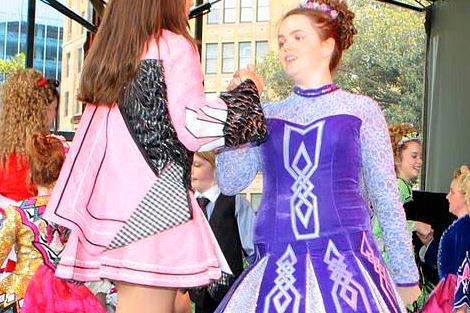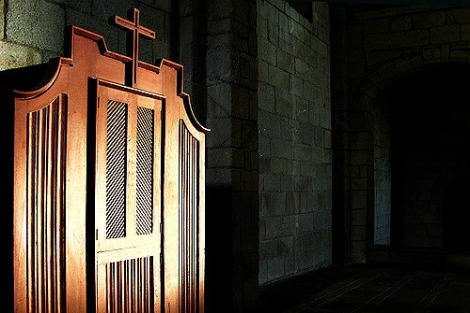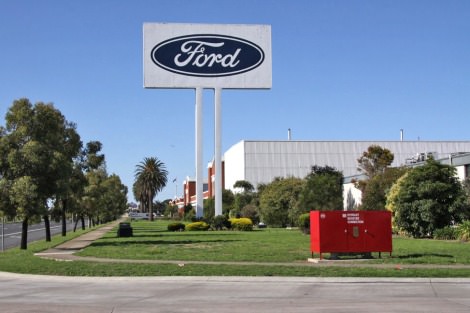Keywords: Training
There are more than 200 results, only the first 200 are displayed here.
-

ARTS AND CULTURE
- Jena Woodhouse and Ian C. Smith
- 24 April 2017
2 Comments
Now, the forces of annihilation once again cohere, as if this were a valve in history's cardiac arrhythmia that faltered and unleashed a haemorrhage of horror, trauma, fear. The damask roses bloom unharvested in devastated fields. Their perfume cannot mask the stench that permeates the air, the atmosphere of dread, of mute despair. But when the juggernaut of war is redeployed elsewhere, the fragrant fields will come into their own, if there are hands to care.
READ MORE 
-

RELIGION
- Francine Crimmins
- 16 March 2017
8 Comments
My grandfather told me Patrick was a saint because he drove the frogs and snakes out of Ireland. He also told me if I stepped in a fairy ring while we were on our walks I'd disappear forever. So naturally as I grew older, I became skeptical. Each year in my family St Patrick's Day has marked a survival of Irish culture in Australia. Sometimes this can be in subtle ways and sometimes it means singing at the top of our lungs, enjoying a drink and having a dance.
READ MORE 
-

RELIGION
- Frank Brennan
- 17 February 2017
3 Comments
The commission's forensic scrutiny of past actions of church officials in no way constitutes an interference with the freedom of religion. Its spotlight is to be welcomed, provided only that it is shone on a truly representative sample of all institutions which have been found wanting and provided the same light filter is applied to all institutions. I do however have a problem with the commission making findings on issues like the want of compassion when those findings are made only against a Church.
READ MORE
-

AUSTRALIA
- Fatima Measham
- 16 February 2017
9 Comments
There's not enough jobs because foreigners are stealing them. Wages aren't going up because foreigners drag them down. Graduates aren't finding positions because skilled worker visas are being given out too easily. Such answers are potent in pockets of Australian society that would rather blame outsiders than demand their government create new jobs, lift the minimum wage, improve work conditions and training, and mediate skills transfers from industries that are contracting, such as mining.
READ MORE 
-

ARTS AND CULTURE
- Tim Kroenert
- 08 February 2017
1 Comment
The Academy, it seems, has listened. After the #whiteoscars furore of past years, three of this year's Oscar nominees for Best Picture, Moonlight, Fences, and Hidden Figures, are films with predominantly (if not entirely) Black casts, and focused on the experiences of Black characters. Cast and crewmembers from all three have been nominated in various categories. To be fair, all three films would have demanded attention, with or without the recent controversy around awards season racial bias.
READ MORE 
-

ECONOMICS
- Veronica Sheen
- 13 December 2016
5 Comments
Over the last two decades we have seen a process of job polarisation. There has been growth in high end jobs, but mostly in low end jobs, the outcome of which has been the hollowing out of middle level jobs. This hollowing out of the middle also relates to greater wealth polarisation, as French economist Thomas Piketty has brought to light. The labour market is under a lot of pressure from many angles, so what does this mean for the project of women's equal opportunity in employment?
READ MORE
-

RELIGION
- Frank Brennan
- 05 December 2016
18 Comments
One distinctively Catholic practice is personal confession in which an individual confesses to God their sins and seeks forgiveness in the presence of and at the hands of a priest. Some groups and individuals are proposing to the royal commission that the seal of the confessional no longer be inviolable. I was quoted in The Australian saying, 'If a law is introduced to say that a priest should reveal a confession, I'm one of those priests who will disobey the law.' Being also a lawyer, let me explain.
READ MORE 
-

AUSTRALIA
- Kasy Chambers
- 18 November 2016
5 Comments
Corey has received housing through a St Vincent de Paul's refuge in Canberra and food assistance through Anglicare. Corey did not complete year ten, and has had a number of odd jobs since leaving school. Corey is passionate about gaming, and will often spend hours on the computer, filling in time after losing his job recently. He says he would love to do some training in gaming, but that his Job Network provider didn't have the money to support him in such training.
READ MORE
-

RELIGION
Two days after his election, the communications team of General Congregation 36 sat down with Father General Arturo Sosa to discuss his life and thought. The conversation introduces the new Superior General in a way that is more personal, to Jesuits and the wider Ignatian family around the world.
READ MORE
-

AUSTRALIA
- Rick Measham
- 07 November 2016
28 Comments
Growing up in Geelong, many friends worked at Ford, or Alcoa, Pilkington or any of the other allied suppliers. As each of these stopped manufacturing in Victoria's second city, employers and governments promised retraining. But where are the jobs? Factories are quickly moving to a 'lights out' operation, with no lights, no air conditioning — and no humans. Modelling suggests nearly 5000 Geelong residents will lose their jobs to the decline in manufacturing before the end of 2017, and 200,000 nationwide. Can we find new-economy jobs for every one of them?
READ MORE
-

AUSTRALIA
- Frank Brennan
- 28 October 2016
7 Comments
Even prior to Brexit, the Conservatives were wanting to replace the UK Human Rights Act with weaker legislation. They have been worried about what they perceive to be a loss of sovereignty. But even the British Conservatives remain committed to some form of human rights act. I commend the Queensland parliament for undertaking its present inquiry, and sound a cautious note of optimism about the modest gains which might be made by the enactment of a human rights act in Australia.
READ MORE 
-

AUSTRALIA
- Megan Graham
- 20 October 2016
11 Comments
While once it was honourable to put your work first, it's now seen as a fool's errand. Not to say staff should discount their employer's interests, but put them in their proper place - important, yes, but not more important than health, for example, or family. Unions have built memberships on these kinds of ideas for decades. But the current movement is not so much about grouping together as it is about individuating: 'My particular needs are important, too.'
READ MORE